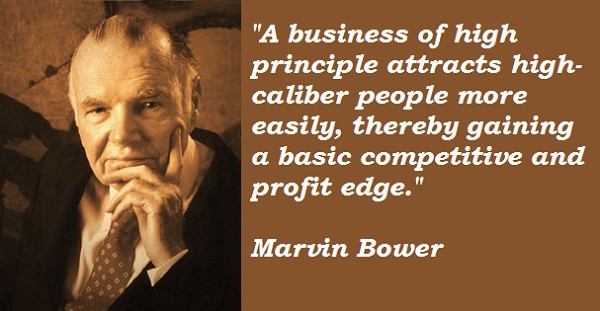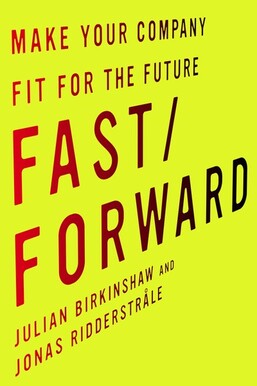|
“In most meritocratic organizations, the words ‘Of course you are right’ are rarely uttered” — Julian Birkinshaw & Jonas Ridderstrale, Fast/Forward By William Ballard In last article we talked about the management model known as bureaucracy and how it favors position over competence, and even over the emotional driving factor of an organization. This week we are going to talk about the second management model known as meritocracy, which tends to favor competence and intelligence over position, and that of the emotional element.
|
| “What constitutes merit is not always objectively clear; in neither a business nor an academic setting do the less acclaimed automatically acknowledge the superiority of the arguments proposed by those apparently smarter. In most meritocratic organizations the words ‘Of course, you are right’ are rarely uttered.” — Julian Birkinshaw & Jonas Ridderstrale, Fast/Forward (AFF) A second “con” of meritocracy type organizations is that they move at an un-desirable speed. They agonize over seemingly simple decisions. In fact, I was once told by a pastor of mine, when we were discussing the ideas of marriage, that the simple decisions I make now (as a single guy), may take only 30 minutes, but when you get married, could end up taking hours. |
You see, in meritocracy type organizations they tend to operate by building consensus overtime, one person at a time, which means they put a lot of time in internal reviews and proposals.
The need for discussion from the collective, especially those at the top, end up getting bogged down into internal procedures and bureaucracies.
“If bureaucracies suffer from the shortcomings of even a benevolent dictatorship, meritocracies display the same disadvantages as those of a democracy.” — Julian Birkinshaw & Jonas Ridderstrale, Fast/Forward (AFF).
In conjunction with the last point, meritocracy type organizations often fall short in the emotional department. In fact, such organizations like these tend to be more rational and analytically minded and come off being insensitive to the feelings of others. In other words, they tend dodge themselves from such arguments that pertain to emotional appeals.
Related Article: 9 Key Ingredients to Cooking Up The BEST Kind of Plan for Your Business Venture
Where a bureaucratic organization favors position over all else, and totally disregards the emotional appeal, a meritocracy organization — that favors competence over everything else — will, in practice, hurt more peoples feelings rather than encourage them and build them up, or acknowledge those feelings altogether.
The third shortcoming of that of a meritocracy organization is that they tend to praise the individual ahead of the overall group. Consider the idea of an organization that is made up of a “Battle of the Brains Royal,” with the focus on the individual that wins the championship and earns the belt.
If the paradox of progress that Julian and Jonas present in their book, Fast/Forward (AFF) is true, and we are becoming relatively more ignorant due to the influx of access to information, the truth is: All organizations must put a greater emphasis on collaboration rather than constant competition. “…a culture with ‘united minds ‘ rather than a ‘mind your own business’ mentality. Know-how needs to be complemented with know-who and a new attitude.” — Julian Birkinshaw & Jonas Ridderstrale, Fast/Forward (AFF).
Final Thoughts
Clearly, the principles of a meritocracy organization are indeed a step-up or improvement to that of a bureaucracy, but it is not the end of our journey.
To truly understand the business landscape of the future, we must look closely to the final management model, which, in essence, fills the gaps both bureaucratic and meritocratic organizations tend to leave open.
As analysis are beginning to make clear, the organizations of tomorrow are more apt to be made up of Independent Contractors or Contributors — 1099 employees — and will be more focused on the competence of the the collective rather than that of a single talented individual.
With that said, next week I’ll be covering the third and final management model of this three part series that I think you are going to find very interesting. You won’t want to miss it.
This article was first published on Medium.
| Hi, my name is William Ballard! I'm the Founder and CEO of William Ballard & Associates, LLC, where we work with incredible business owners and entrepreneurs like yourself every single day. We are big believers in the fact that the key to business success is effective business planning and courageous execution. With that said, we encourage you to schedule a call with us to discuss your business goals, and to see how we might be able to help. |
Comments










